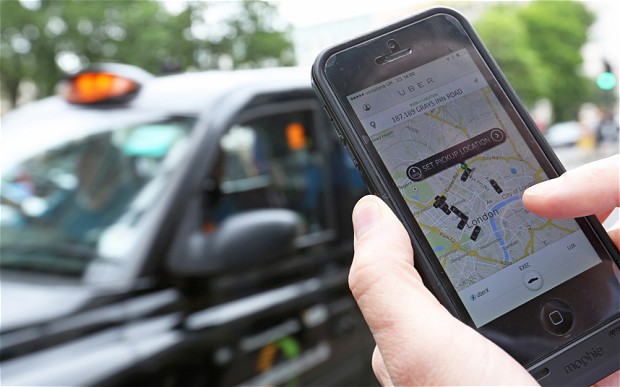Boris Johnson’s position on taxi-mimicking app Uber has been edging towards the cabbies’ point of view recently – that the app effectively serves as a taximeter, and that Uber vehicles are effectively operating legally.
“We’ve got to sort this out because what you’ve got is the Uber people using what I think is effectively a meter because you’re reading from it the fare and distance. If it’s a meter then that company is in breach of the act” he was quoted as saying by ITV News. He went on to clarify his position, saying that, “It doesn’t matter if the calculation is done in outer space as far as I’m concerned, if it’s there in the dial, if the actual meter is there in the cab, then that’s a meter.”
As only licensed hackney taxis are permitted to pick up and charge using a meter system, this comment would appear to support taxi drivers’ position that Uber is operating illegally in London and elsewhere in the UK.
Transport for London, who have the final say on such matters in the capital, appear to disagree with Boris for the moment though, having granted the firm a private hire license. All Uber drivers of course also require taxi insurance, of a kind, but do not currently have to hold a hackney licence, which would permit them to pick up and drop off on the street without pre-booking, and to charge via a meter.
Whether or not Uber is eventually determined to be utilising a meter system and therefore operating in breach of the regulations will of course have a massive impact on its future in London. But there are also other issues in play that could come into play in the battle for London’s commuters.
Black cabs Vs Uber
Back in August 2015, Boris Johnson said that he didn’t like the way in which Uber were “moving into London and claiming they could take all the business away from black cabs.” He also appears to be taking steps to move London’s black cabs towards the future, ensuring that they stay relevant in a world where smartphone apps are endemic in all walks of life, particularly as people try to get from A to B.
Last year he announced that all new taxis in London would be required to be capable of emitting zero emissions by the year 2018. Though the cabs will not be required to run in zero emissions mode all the time, they would do so in the most heavily polluted areas of the city, such as Central London.
Last month it was announced that The London Taxi Company would build a new manufacturing plant in Coventry to research and manufacture new versions of the black cab which would comply with the new regulations. It is expected that the new TX5 taxi model will be a hybrid vehicle, but will also be released as a fully electric version by 2018.
Despite these moves to green the capital’s taxi fleet though, the Green Party has said that Johnson has not gone far enough, after failing to deliver on a pledge to create 25,000 electric charging points around London. This, the party says, is needed to support a new fleet of entirely electric taxis.
It is also not clear whether the new rules on emissions will apply to Uber drivers, or whether they will continue to side-step regulations that apply to taxi drivers.
The new regulations might also affect taxi insurance policies, as the engine of a vehicle is always a factor in determining the cost of the policy. To discuss renewing your current taxi insurance at a fair price, talk to Park Insurance.

